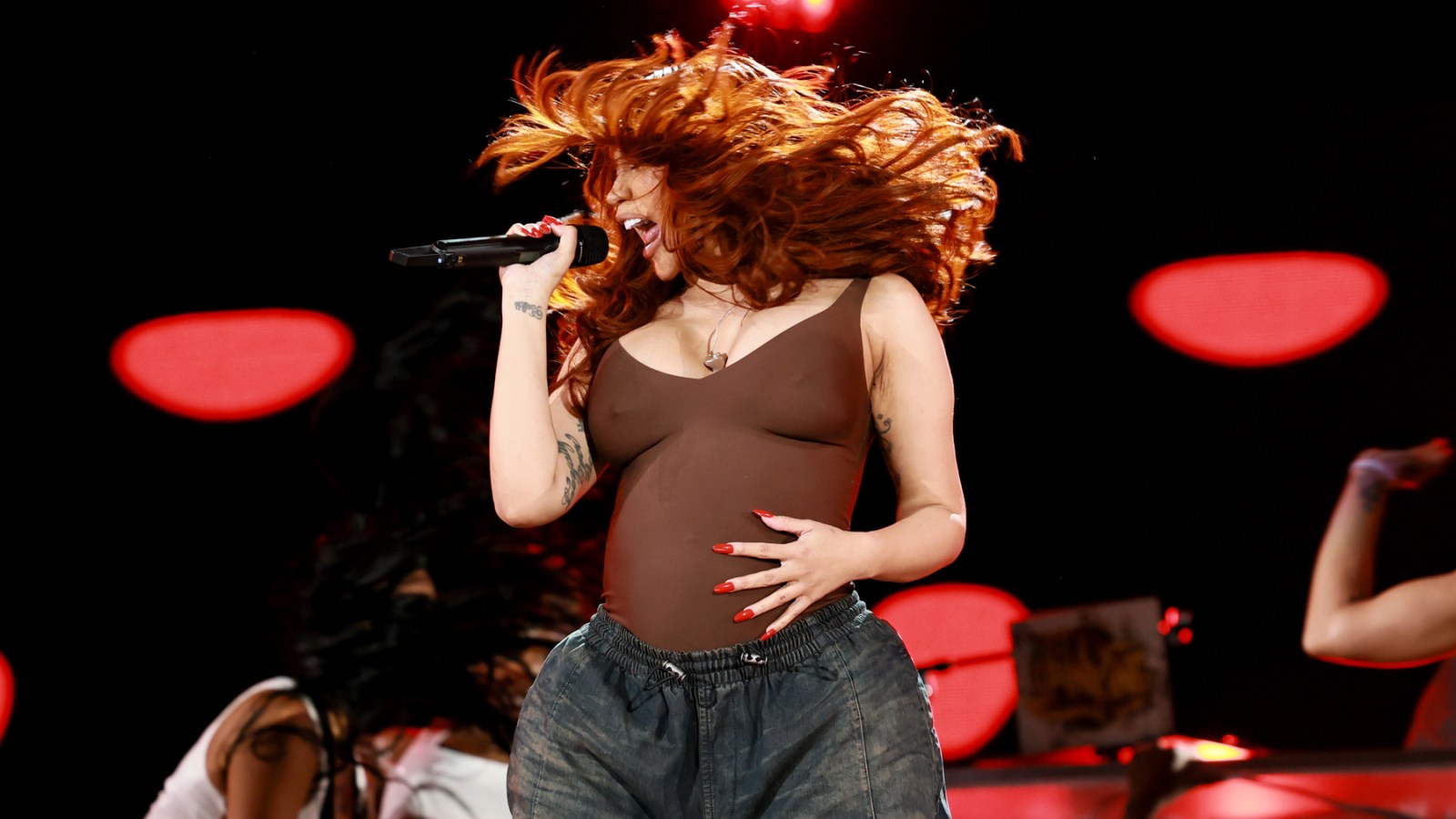On Sept 5, 2024, a year before his death, Charlie Kirk was debating at the University of Wisconsin-Madison. “We have a problem in Black America,” he argued. “The biggest problem is not racism, it’s a lack of dads. If dads are around, kids flourish.” He pointed to Barack Obama, a product of single motherhood, who in 2008 said, “Too many fathers are missing…More than half of all Black children live in single-parent households, a number that has doubled. The foundations of our community are weaker because of it.” A student in Kirk’s debate audience countered by pointing out systemic racism and noting the way mass incarceration “take[s] away Black people from their families,” creating so-called “broken homes.” But Kirk doubled down. “There’s a cultural expectation that is different in Black America than white America,” he said. “In Black culture, it’s OK to impregnate a woman and abandon her. It’s glorified by the rap culture. You think the songs most popular in Black America are uplifting Black America to be better versions of themselves? Nicki Minaj, Cardi B, do you think they are empowering people to be great?”
That debate came to mind one year later, on Sept. 17, 2025, when Cardi B confirmed in an interview with Gayle King that she’s expecting a child with her current boyfriend, New England Patriots receiver Stefon Diggs. She was on a press run to promote her second album, Am I The Drama?, off the heels of a court date earlier that month where she made headlines for throwing a pen at a street reporter who questioned the paternity of the child. “I’m excited, I’m happy… I feel like I’m in a good space,” Cardi told King during their sit-down. “I feel very strong and powerful that I’m doing all of this work… while creating a baby.” She revealed that the baby, her fourth, will be born before she goes on tour next year. “I’m not hiding,” she said of her choice to keep her pregnancy under wraps until then, to the point that she hadn’t yet told her parents. “Can I just say it on my own time, my own terms?”
But as news of her pregnancy spread throughout social media, users accused the Bronx rapper — who is reportedly still legally married to fellow artist and former Migos member Offset — of bringing a child into a “broken home,” being “irresponsible,” and partaking in “ghetto shit.” While many noted that her youngest child, Blossom, had just celebrated her first birthday, others compared Cardi to Nick Cannon, who recently admitted that he was acting out of a “trauma” response when he fathered 12 children with six different women. One of the most viral and vitriolic critiques came from Crissle West, co-host of the popular pop-culture podcast The Read. “Giving her pussy to whoever the fuck she wants to and keeping whatever y’all drop off in her fucking uterus is crazy,” West said to her co-host Kid Fury. “I was expecting so much more out of Cardi B… You are not some bored, broke bitch in the Bronx, who don’t have shit else to do.”
For decades, researchers, politicians and community leaders have pointed to “broken homes” and single motherhood within Black communities as the culprit for Black Americans’ disadvantages within society. In this view, the lack of traditional nuclear family structures — a married mother and father living with children — within Black communities resulted in gun violence and poverty. Yet research has thoroughly debunked this idea. Contrary to popular belief, the negative effects for Black children within single-parent family structures, such as poor performance in school, are actually less pronounced in comparison to their white peers, in part due to the extended-family kinship present in those homes. More than their peers, Black children from single-parent structures often have father figures around — be they biological, communal, or stepparents — even if they’re not living in the home. Even so, the theory that nuclear families are the saving grace for Black children reigns supreme, albeit untrue.
While it’s unclear where West or Fury, who are both queer, stand on the nuclear family conversation, the concern that West expressed for Cardi’s children aligns with the stereotypical assumption that Black children have a lack of fathers and are therefore suffering. “Maybe because you have so much money it’s not really hitting you… [because] other people are doing…the day-to-day child care work,” West continued. “Kids need a solid foundation and need their parents to be locked in and engaged. Your children will be hurting for the lack of their father’s presence in their life… Either way, the children lose.”
Black nuclear families, like the one Cardi B (who is Afro-Latina) was part of for the past seven years, are actually on the rise, according to Christina Cross, a professor, researcher, and sociologist at Harvard University who has studied this subject extensively. Yet most of those families are still systematically behind due to racial inequality, and Black families, of all kinds, are facing discrimination that leads to higher suspension and expulsion rates in school, lower on-time high school completion rates, and not enough financial resources.
In her latest book, Inherited Inequality, Cross examines the question of whether or not living in two-parent families determines success for Black children. According to her findings, although two-parent Black families had improved outcomes versus their peers from single-parent homes, the improvement was generally modest. And both groups fell behind white two-parent families, with Black two-parent families barely thriving above white single-parent families. “Black two-parent families are still at a higher risk of experiencing poverty because of America’s history of unequal economic opportunity that makes the gap so wide,” Cross tells Rolling Stone, concluding that Black families as a whole “are systematically disadvantaged in the U.S.”
Cross’ work on the matter started a decade ago. As Cardi B’s celebrity transitioned from reality stardom on Love & Hip Hop: New York to a high-profile career as a Grammy-winning rapper and fashion mogul, Cross was tracking the success rates of Black children in America living in single- and dual-parent families. She sees her work as adding something that’s missing from most other sociological studies: “We haven’t spent a lot of time studying two-parent Black families, and we make a lot of assumptions of the single-parent family being the fundamental reason why Black people have a harder time getting ahead,” Cross says. “A lot of these conversations that are happening about Cardi B and her new child are rooted in the culture and politics, but unfortunately not rooted in fact.”
The phrase “nuclear family” was first coined around the 1920s by Polish anthropologist and Yale professor Bronislaw Malinowski. Malinowski — who studied communal societies like that of Papua New Guinea, whose people he deemed savages — believed that the nuclear family was the “pivotal element” of society and that anything less than that would cause “social catastrophe.” By 1965, as the U.S. economy was shifting from agriculture to industrialization, the idea of a nuclear family gained strength. “The U.S. government invested money into advertising campaigns to promote the two-parent family,” says Cross. “It was accommodating the changing economic structure of American society.” Labor Department researcher Daniel Patrick Moynihan, hired by president Lyndon B. Johnson to analyze Black poverty, landed on a similar conclusion in his report The Negro Family: The Case For National Action. “Moynihan decided that slavery had led to the destruction of Black families, and it was this brokenness, this destruction of Black families, that was at fault and the root cause,” Cross says.
While slavery did break apart Black families, Black folks resisted, often maintaining their own family structures known as kinships, while also having higher rates of marriage than their white peers until the 1960s — contradicting Moynihan’s findings that Black “households developed a fatherless matrifocal (mother-centered)” family because of slavery. “In the Emancipation era, we see an increase in the number of Black folks who marry,” says Deadric Williams, an associate professor at the University of Tennessee whose research focuses on racism and families. “Black women had this conundrum. They left one white supremacist institution called slavery to enter into another oppressive institution called marriage, in which they are second-class citizens to their husbands. Marriage showed this interlocking system of white supremacy, patriarchy, and capitalism happening simultaneously.”
Since the 1960s, Black folks’ conditions within the United States have been blamed in part on fatherlessness and supposedly domineering mothers heading households while on public assistance. Yet in the last decade, the nuclear family structure within the Black community has risen by 15 percent, and Cross’ findings show that the U.S. isn’t spending nearly enough to help those of them in need. Public welfare programs like Temporary Assistance for Needy Families are not being directed toward the families they’re supposed to serve. In fact, many of the funds states receive are put toward programs that promote marriage and prevent “illegitimate births.” “TANF is run by the federal government and is our country’s primary cash assistance program for low income families with children,” notes Cross. “The funding for this program has not increased since 1996, and we are defunding it by not making sure the budget keeps up with inflation. If we did, we could see an increase in the money families have to devote to their children or like we saw in the pandemic, there was an expansion on the child tax credit for six months that lifted millions of children out of poverty.”
In the case of Cardi B, whose net worth is reportedly close to $100 million, being legally separated from her husband qualifies her as a single mother, although her economics put her in another category apart from both single- and dual-parent families. The litigation over her divorce, especially while she is now pregnant, also shines a light on local laws and policies and how they impact families that do not take nuclear form. According to Diana Adams, a New York lawyer who specializes in LGBTQ+ and non-traditional-family law, “there can unfortunately be issues” in cases like these, where “too often it’s a subjective decision” based on the judge and the location of the court. “I’ve done divorce cases in New York State; if you’re in a progressive county or New York City, they don’t care,” Adams says. “The further north you go, the more rural and more likely you’re going to have a judge that gives you a hard time.”
Many of those who agreed with West’s critical comments said their concerns were less about Cardi and more about the children. On one hand, she is amidst a messy divorce, and much of the toxicity surrounding that has been in public view. Children need safe environments to thrive, which is one of the reasons why I left my own relationship with my son’s father at seven months pregnant, choosing single motherhood. Yet despite the domestic peace this choice can bring, the system, especially when navigating conservative judges in court proceedings almost five years later, is taxing — especially as a woman who is left to do it all.
According to Deja Logan, an analyst at Child Trends — a nonprofit research organization that studies children and families — the most important factors for children’s success are “access to supportive households, community resources, quality schools, safe neighborhoods, positive role models, and access to parks and recreations and green spaces.” In her May 2024 cover story for Rolling Stone, Cardi B discussed the mansion she had recently purchased in New Jersey and how members of her extended family — at one time, eight people — were living with her and helping with her two kids at the time, Kulture and Wave, as she recorded her next album. She spoke fondly of their family time on the weekends, which they spent dancing to merengue and eating oxtail. “When Offset comes around, he comes around, so he’s a helping hand too,” she added.
“She doesn’t fit the stereotype of the welfare queen,” says Cross. “And so the question then becomes, does a child raised in a well-off single-parent family or stepfamily do as well as their peers in two-parent families? The honest answer is we really don’t know because we haven’t spent much time studying it. My suspicion, based on what we know about why family structure matters, is that these children are going to have opportunities most people on the planet will not have access to.”
The bottom line is that societal views on motherhood and family have real implications for everyday people — especially mothers with similar circumstances but less money than Cardi B. Despite her celebrity, her harshest naysayers have reduced her and her pregnancy to “street bitch” and “ghetto shit” activities. These terms fall into the same category as Malinowski’s racist label of “savage” more than a century ago. In a time where Roe v. Wade has been reversed and conservatives are eager to implement policies based on their own regressive views, the harsh public opinion on Cardi’s family structure shows how far we still have to go.



